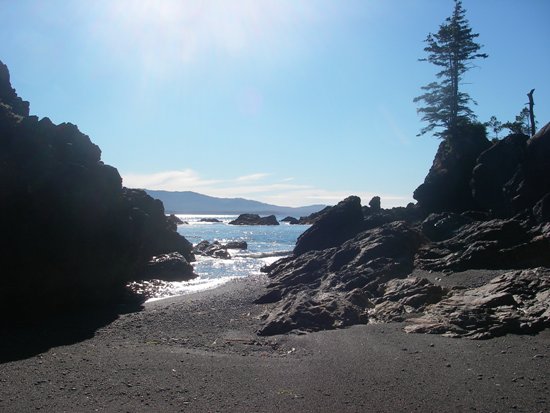
Even before 1784 unauthorized accounts had already familiarized British merchants with the possible profits to be made. His journals were published in 1784 and aroused great interest in the fur trading potential of the region. James Cook of the British Royal Navy explored the Pacific Northwest coast, including Nootka Sound, in 1778. By 1775 Spanish exploration had reached Bucareli Bay including the mouth of the Columbia River between present-day Oregon and Washington, and Sitka Sound. Between 17, Spain sent to reassert its long-held navigation and territorial claims to the area. Starting in 1774, Spanish expeditions were sent to northern Canada and Alaska to reassert Spain's claims and navigation rights in the area. These voyages, intended to ascertain the Russian threat and to establish "prior discovery" claims, were supplemented by the "effective settlement" of Alta California.
#Nootka island series
Thus when, in the mid-18th century, the Russians began to explore Alaska and establish fur trading posts, Spain responded by building a new naval base at San Blas, Mexico, and using it for sending a series of exploration and reconnaissance voyages to the far northwest. Before the early 17th century, these voyages had not reached north of the 44th parallel, and Spain had no "effective settlement" north of Mexico. Spain made claims of prior discovery for the northwest coast of North America through voyages of Cabrillo in 1542, Ferrer in 1543, and Vizcaino in 1602–03.

As the years went by new criteria for determining sovereignty evolved in European international law, including " prior discovery" and "effective occupation". More importantly, in 1513 Spanish explorer Balboa crossed the Isthmus of Panama and became the first European to sight the Pacific Ocean from the Americas, formally laying claim to all the shores washed by the Pacific Ocean. This was further defined in the 1494 Treaty of Tordesillas. In 1493 Pope Alexander VI had issued the Inter caetera papal bull, dividing the western hemisphere into Spanish and Portuguese zones, based on the discovery of the Americas in 1492, in theory granting nearly the entire New World to Spain. This claim was based on a number of events. But by the end of the century, several nations were vying for control of the region, namely Britain, Spain, Russia, and the United States.įor centuries Spain had claimed the entire Pacific coast of North and South America. Northwestern North America (the Pacific Northwest) was little-explored by European ships before the mid-18th century. The immediate outcome was a success for the mercantile interests of Britain. Spain renounced many of its exclusive trade rights and territorial claims in the area, ending a 200-year monopoly on Asian-Pacific trade. British subjects, as well as the Spanish, were then enabled to trade up to ten leagues from parts of the coast already occupied by Spain in northwestern America by April 1789 and could form trade-related settlements in unoccupied areas.


The crisis was thus resolved peacefully but with difficulty through a set of three agreements, known collectively as the Nootka Conventions (1790–95). Without French help, Spain had little hope against the British and the Dutch, resulting in Spain seeking a diplomatic solution and making concessions. Both sides called upon allies, the Dutch joined the side of Britain Spain mobilized their navy and her key ally France also mobilized theirs, but the latter soon announced they would not go to war. Public outcry in Britain led to the mobilization of the Royal Navy, and the possibility of war. The commander of the outpost, Jose Esteban Martínez, seized some British commercial ships which had come for the maritime fur trade and to build a permanent post at Nootka Sound. It took place during the summer of 1789 at the Spanish outpost Santa Cruz de Nuca, in Nootka Sound on Vancouver Island in present-day British Columbia, Canada. The Nootka Crisis, also known as the Spanish Armament, was an international incident and political dispute between the Nuu-chah-nulth Nation, Spain, the Kingdom of Great Britain, and the fledgling United States of America triggered by a series of events revolving around sovereignty claims and rights of navigation and trade. Naval confrontation between the United States, Great Britain and Spain near Vancouver Island Location of Nootka Sound on Vancouver Island


 0 kommentar(er)
0 kommentar(er)
